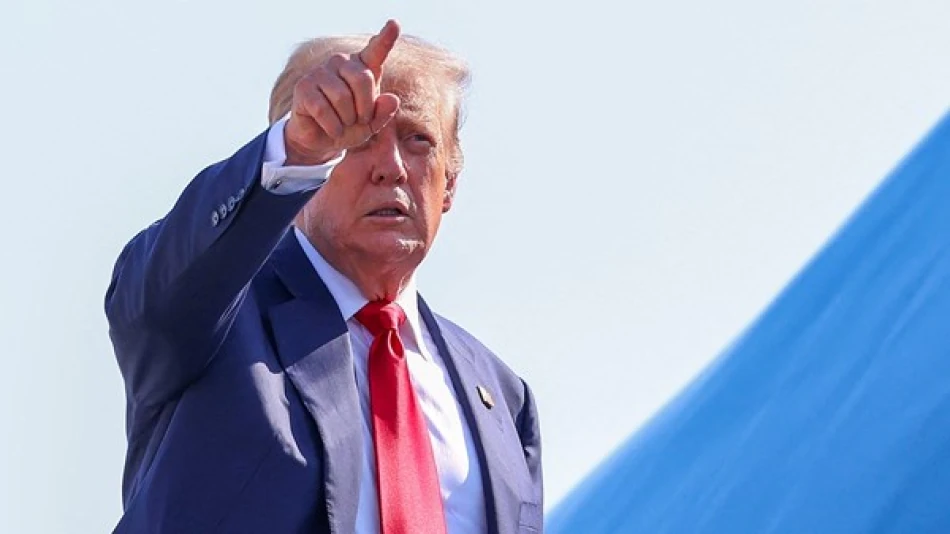
Trump Comments on Potential EU Trade Deal: Implications and Opportunities
Trump Signals Cautious Optimism as US-EU Trade Talks Enter Critical Phase
President Donald Trump has assessed the chances of reaching a trade agreement with the European Union at "50-50, maybe less," as negotiations intensify to prevent sweeping 30% tariffs from taking effect on August 1st. The measured tone suggests both sides are exploring serious compromises that could reshape transatlantic commerce.
The Stakes Behind the Numbers
Trump's candid assessment came as he departed Washington for a five-day visit to Scotland, telling reporters that while he sees even odds for a deal, "the European Union has a very good chance of making an agreement." This diplomatic language marks a notable shift from his earlier hardline rhetoric, suggesting genuine progress in ongoing negotiations.
The looming August deadline has created urgency on both sides of the Atlantic. Trump's threatened 30% tariffs would represent one of the most significant trade barriers imposed on European goods in decades, potentially affecting everything from German automobiles to French wine and Italian machinery.
Learning from the Japan Playbook
Trump's recent success with Japan offers a template for the EU negotiations. His administration secured a 15% tariff rate with Tokyo—significantly lower than initially proposed—demonstrating his willingness to compromise when trading partners show flexibility on market access.
This precedent suggests the EU deal may hinge on similar concessions. Trump has consistently demanded that Europe open its markets wider to American goods, particularly in agriculture and services sectors where European protections have historically limited US penetration.
European Signals Point Toward Resolution
German Chancellor Friedrich Merz's recent hints that an agreement may be imminent add weight to Trump's cautious optimism. Germany, as Europe's largest economy and a major exporter to the US, has significant influence over EU trade policy and strong incentives to avoid a damaging tariff war.
The European position has evolved considerably since Trump's initial tariff threats. Brussels appears increasingly willing to discuss agricultural market access and regulatory harmonization—traditionally sensitive areas—in exchange for tariff relief.
Market Implications and Investor Considerations
For investors, the 50-50 odds create a classic uncertainty premium in European export stocks. Companies like BMW, Airbus, and luxury goods manufacturers have seen volatile trading as markets price in both scenarios. A successful deal would likely trigger significant rallies in European exporters while potentially pressuring domestic US competitors.
The agricultural sector presents particular opportunities. American farmers, who have been vocal supporters of trade deals, stand to benefit substantially from increased European market access, potentially offsetting losses from previous trade disputes with China.
The Broader Strategic Context
This negotiation reflects Trump's transactional approach to international relations, where economic leverage drives diplomatic outcomes. Unlike traditional trade negotiations that can span years, Trump's deadline-driven strategy forces rapid decisions and concrete commitments.
The timing also matters geopolitically. With ongoing tensions in Eastern Europe and China's growing economic influence, both the US and EU have strategic reasons to strengthen their economic partnership rather than engage in a damaging trade war that could benefit competitors.
Most Viewed News

 Layla Al Mansoori
Layla Al Mansoori






